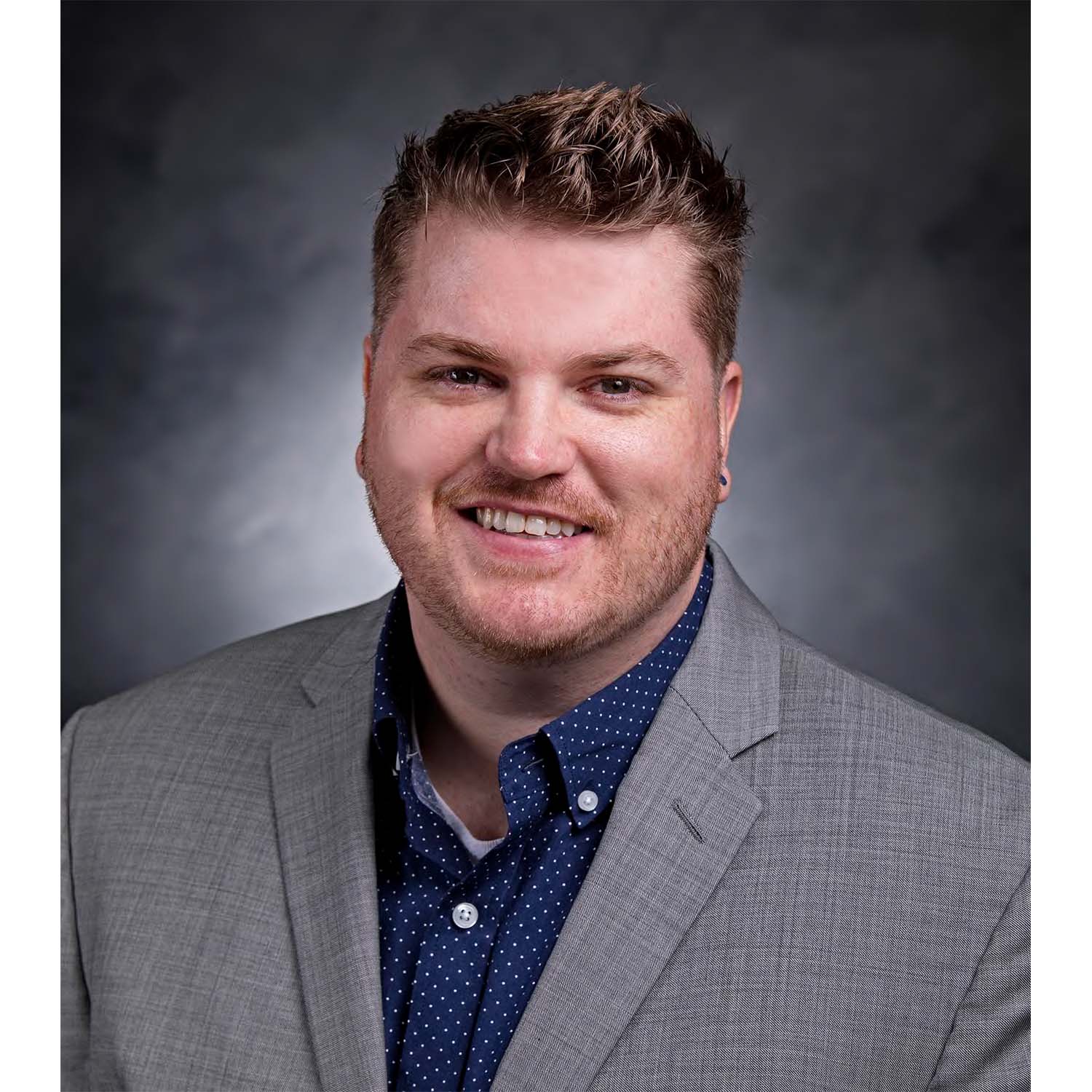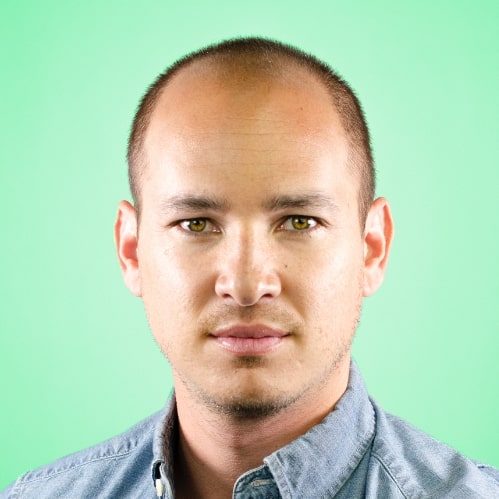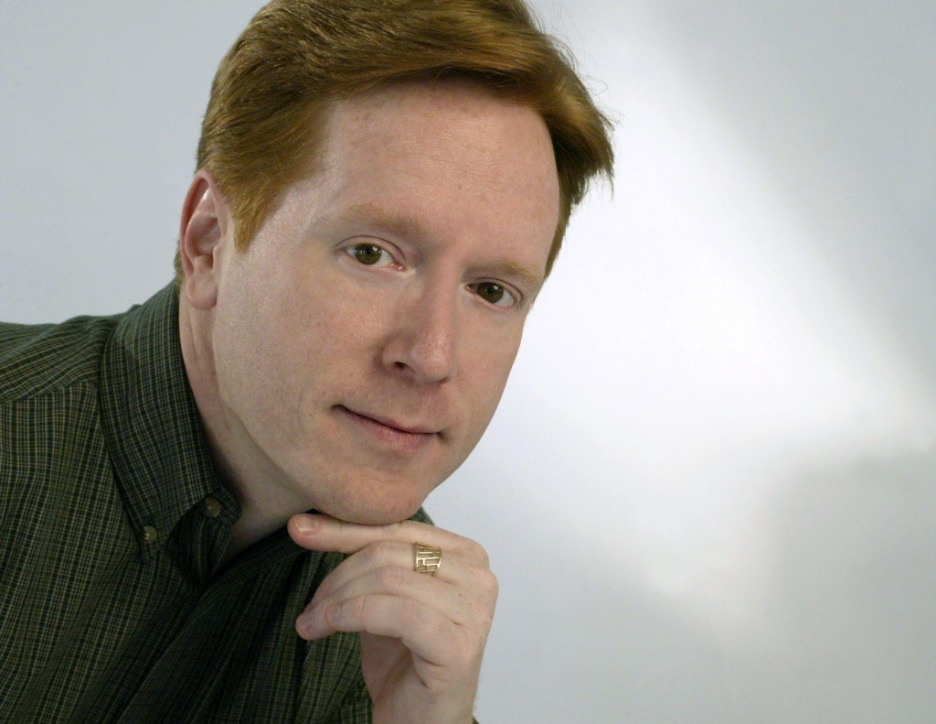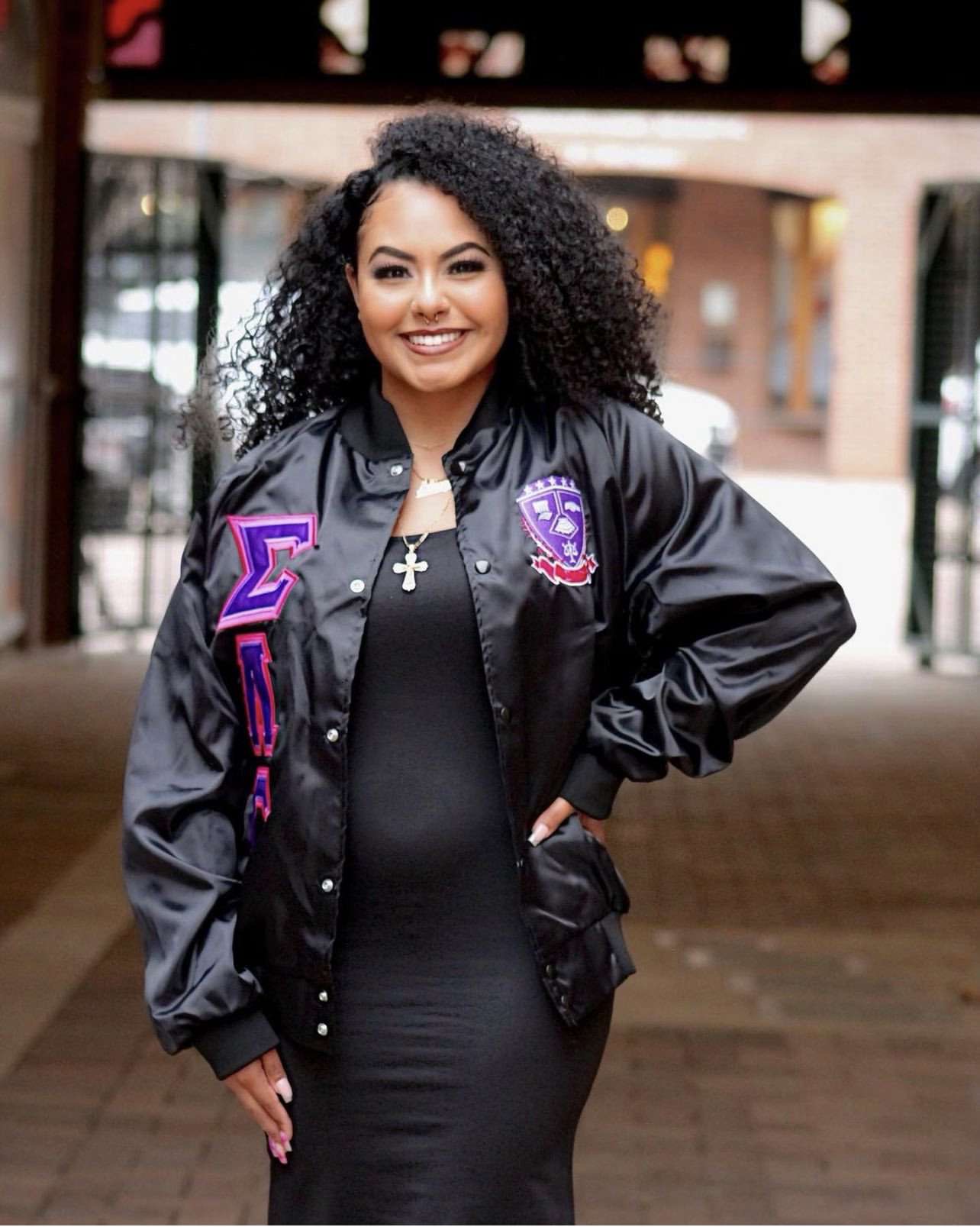
UNC professor Patrick Brady discusses the relevance of having victim studies courses at UNC and shares his history studying criminal justice and victimization. (Running time 21:15)
Transcript:
Patrick
I am Dr. Patrick Brady, and I am in the Department of Criminology and Criminal Justice, and I primarily teach classes in victimization, policing, and juvenile justice.
Isabella
Dr. Brady has been a professor at UNC for two years. He is passionate about studying victimology, policing, and cybercrime, and he has come out with many publications on these topics. It's about years working with those communities to gather research and gain a better understanding. He is so passionate that we had a 40-minute interview, so this episode will be broken into two separate parts.
This is the last warning. I am going to pop in just to say I have no clue what was happening with my microphone. I listened to it back, and it does not sound good, so bear with me on these two episodes. Sorry for this episode. I am going to start off with a trigger warning. It is nearly impossible to talk about victim studies and victimization without talking about how people become victims.
So, in this podcast episode, there are talks about abuse, stalking, victimization of elders in minors, and other crimes that come along with victimization. Why did you choose to come to UNC?
Patrick
I actually came to UNC specifically because the department actually required a victim-based course, and you just don't really see that in social sciences, which I think is kind of crazy to think that, like we have so many people who are going out and working with the community, whether they are in the criminal justice system or the health care system, and they've never had any exposure to how to work with someone who is in crisis or understanding trauma behaviors. And I think that that is a huge disservice. And so when I saw that UNC actually required it as part of the core courses, that was a selling point, and UNC needed someone to come and teach the victim-based courses. And so, it was a great opportunity.
Isabella
Do you know how many schools do teach victim-based courses or like if there is like a little bit of it?
Patrick
I do. I do, actually. And in fact, that was the first research study I ever published, was looking at the extent of victim-based courses in social science degrees. I was working for a professor when I was getting my master's degree at Boise State, and she was interested in this question and she had me, another grad student, comb through like 800 different department websites to look for what their core requirements were all the way to the Specializations faculty. And if they studied victim-based topics and things like that. And so what we found as across like the 800 programs, it was only about 11% that actually required students to take a victim-based course. So which means that pretty much, you know, 90% of people who are getting degrees in a social science field have never taken a victim base or had never been required to take a victim-based course.
Isabella
So when Dr. Brady talks about social sciences that could benefit from learning about victimization, he is not just talking about policing and criminal justice. He's also talking about medical fields, mental health fields, teaching fields. You know, the list literally goes on. But what he is trying to emphasize is that a lot of people could really benefit from learning about victimization at the college level.
This would be before they enter a world where they may have to work with victims. And these courses aren't required for students at the majority of schools who are going into fields like this. So at UNC is just one course that's victim-based course that criminal justice students are required to take.
Patrick
Yes, it is called victim studies. It's a 300-level course. And so in that course really focuses on, you know, a lot of the research in terms of victimization and victims' experience with the criminal justice system. So I generally kind of walk students through theories about why people are more likely to become victims than others. And then we move into working with, like, specific types of victims.
So the first kind of focus is on vulnerable populations. So we talk about child maltreatment, differences between abuse and neglect, how to kind of identify some of these behaviors and how we as men, mandatory reporters can help with that aspect of it. But also, in terms of the investigative aspects of it. And then we talk about elder maltreatment and some of the issues that go along with that and just how a lot of these crimes are very hard to investigate and prosecute because of the vulnerability of the individuals with elderly individuals maybe having some dementia or, you know, other kind of barriers that prevent them from fully identifying what's going on.
And same thing with kids, too. And so helping, you know, students kind of understand that. And then we get into more specific topics. And so what we learned about domestic violence in Colorado and how Colorado is really different in terms of their approach to domestic violence, what Colorado considers domestic violence to be, and then more recently, we are focusing on this idea, of course, of control.
We are talking about how abusers will use crimes like stalking and strangulation to really kind of instill fear and control and victims. And that really helps students understand like why it's very challenging for victims to get out of abusive relationships. You know, I tend to kind of always emphasize if our criminal justice system could guarantee that cooperating with them would guarantee safety for victims, we would be able to, you know, really kind of nip domestic violence early on.
But in all honesty, you know, abusers kind of create a world that victims live in that makes it really kind of hard to make decisions for themselves, which include leaving those abusive relationships. And then we just focus more on like kind of victims experiences in the criminal justice system, kind of the idea that our justice system is a gantlet and helping students understand that, you know, arrest and prosecution is not always the outcome that victims want and kind of just how to work with victims and understanding the roles of, you know, victim advocates and the community, but also victim witness coordinators and police departments and, you know, district attorney's offices and the vital role that they play in keeping victims up to date with information and support and advocacy. And so really, the whole kind of takeaway of that aspect is to help students have a better understanding of how trauma really impacts the brain and how trauma behaviors are really kind of indicators that our current justice system really focuses on in terms of assessing credibility with victims.
So a lot of times when investigators perceive victims to not be credible, a lot of that can be explained through trauma behaviors. And if we understand how victims remember details during traumatic and stressful incidents, we can get a better understanding of how we can work with victims to provide them with a better support as they go through this gantlet of a system. And so really just helping students know how to work with victims and to understand that it's not always an easy thing and that not everyone is, you know, always trained to be a, you know, a good active listener. But then also like how to refer victims to services and things like that, regardless of whether they work in the criminal justice system.
So helping them understand, you know, you never know when it's going to be a friend or family member or maybe even you that becomes a victim of a crime. And so really just providing students with the skills to understand how we can better approach victims and what we need to be doing when we're working with victims and providing them with the support and resources so that they be they can become much more resilient.
Isabella
I can't believe that there are as many of that in just academia in general. Very important. So what made you want to study criminal justice?
Patrick
Well, I mean, it started early. I when I was in elementary school, my neighbor was kidnaped and so that was like the first time like I really ever had exposure to the FBI. And like most people in their lives, like, never have an experience with the FBI. And if you do, it's it's probably not a great situation. And so I just remember the FBI coming to this very small town and like searching for, you know, my neighbor and things like that. And she was never found. And so it's still an unsolved case to this day. And they are fairly certain that they ruled out the family. And so they the kind of leads think it might be a stranger situation. And so I always just thought that was interesting. And I just remember the community's response to it. And that's right on the cusp of where a lot of schools started to implement like stranger danger programs. And what we know from the research is that, like stranger danger programs are not effective at all because strangers are pretty much the least likely ones to hurt kids. And so I always just thought that was like really interesting how they really emphasize the stranger danger mentality. But then when I started to go to high school and college to realize that like, Oh, that really wasn't effective.
But at the time, that's what they knew because it was 1993 kind of thing. And so that always kind of interested me in like, ah, the response to victimization. And so from there I started studying forensics at Weber State to kind of get better at like how we can collect evidence in these cases. And then ultimately I just became fascinated with the topic and, and really wanted to get better at using research and data to answer, you know, important questions that we have, not only in terms of improving responses, but preventing situations from requiring criminal justice responses.
Isabella
So can you tell me a little bit about your history of studying victimization?
Patrick
The first time I ever really started working on a research project I took a second law class in my undergrad, and the professor was she was a subject matter expert and child witnesses and child victims testifying in court. And so, we had a whole section on, you know, children in the legal system. And I just thought that was kind of fascinating, the idea that, like there could be like a seven-year-old who was a victim of a crime and testifying in a criminal trial, that to me, always just seemed like insanely stressful. And I was curious on how the system really works with victims when they are children or adolescents. And so the professor was conducting a research study trying to figure out what is the best time of day to interview a child. And so, she got a big grant from the National Science Foundation, which allowed her to be able to hire me and another student to work for her all summer.
And so, I was able I wouldn't say I was able I was like told to go to all these daycares throughout Utah and we would do one of two things. We would come to the daycare and one of us would do like a magic show for the kids and then the other one would come two weeks later and interview them using open-ended questions like, Tell me more about that versus like direct questions. Did the magician pull a coin out of your ear? And we did that. We did interviews at three different times of day to figure out, you know, what times of day children were better able to provide accurate information and whether or not open-ended versus kind of closed-ended questions influenced that. And so that was really fascinating because it made me realize just kind of like how tedious it is to actually collect data and do it well. And it wasn't until I like I was able to go to a conference to present on the study and I, like had never presented it like a major conference and stuff. And then a couple of other professors in the field came up and they were like, “You should go to grad school”. And at the time I was getting close to graduating and I was thinking about like becoming a cop, but then like looking at what it requires to become a cop.
And I'm like, I don't want to do setups to get a job. So, I was like, “Sure, I'll go to grad school.” And then it was in grad school that I actually started working for this professor who had built all these relationships with different criminal justice agencies throughout Boise, Idaho. And so, she was very connected with people and it was awesome because around Boise, like there's a lot of very progressive agencies in terms of, you know, improving their responses to like violence against women.
And so outside of Boise, they have a family justice center, which is a kind of one-stop shop for victims. And so, victims can go there for advocacy counseling. They have the Department of Health and Human Services there. So, getting them like quick food stamps, things like that, as well as like they have forensic interviewers, they have sexual assault nurse examiners there. So, it's instead of forcing a victim to kind of go to all these different offices around town, it's a one-stop shop where they don't have to keep repeating their story over and over and over again. This professor had partner with these agencies and stuff like that. And so, when I started going to grad school, she had just started this evaluation of two different responses to domestic violence.
And so I was lucky enough to go and collect a lot of the data for it. So I was able to go into all these different agencies and talk to people in professions I'd never even heard of. I had no idea what a sexual assault nurse examiner was or anything like that, and I didn't really even have a whole kind of understanding of what like domestic violence was. You know, I grew up in a relatively privileged family. My parents are still married and they still like each other. And, you know, they were never mean to each other in front of us. And I never even really saw domestic violence in my community until I started, you know, talking to the people who investigate and prosecute these cases. And it was just like very eye opening. And it was crazy. It was like some of the stories that they were telling me, like that's like the domestic violence aspect, the coercive, controlling aspect when like when victims are in fear of their life because another person could absolutely take it. Like to me, that seems like the most terrifying and alarming situation ever.
And so it really kind of opened my eyes to this world. And so like before that, I haven't really I hadn't really studied domestic violence while I was working for her. They actually put me over in an agency as part of my graduate research assistantship over at the Idaho Coalition Against Sexual Domestic Violence. So I was there, a research specialist there, and then one of my direct supervisors, she is actually one of the leading experts on stalking. So like multiple times she was going out of town to go train officers and victim advocates about how to improve their responses to domestic violence, sexual assault and stalking. And then part of a grant I was working on, she actually brought me with her to do some of those trainings. And again, it was just like fascinating, you know, learning all about this and like seeing officers who are bummed that they have to go to this all day training in the morning.
But by the end of the training, they're so pumped because now they have all this like great information of how to really deal with some of these challenging cases. And to me, like that's really kind of what settled in is like, oh, I want to I want to get better at like helping officers get better at their job. And it was through kind of that experience that I learned that so many officers like want to do. Well, they don't they don't always love, you know, the way that policing is portrayed in the media and things like that. And it helps us remind us that we have to understand that like every police department is so different and we have a ton of research to show that. So it was really cool to see officers who were even just kind of like mediocre and not super thrilled about domestic violence and stuff like that to like actually feel like it was worth their time. And I just really like that aspect of it. It was really cool to see officers and advocates and prosecutors like get excited about the work that they've been doing, especially when the work that they're doing. Like there's not always a ton of wins in those cases because they are hard to investigate and prosecute. And so that really kind of helped me get a better idea of like, I guess I'm just going to go to school for the rest of my life to figure out like how to be better at it. And, you know, and I'm glad I did.
Like, I never thought in a million years I would be a professor. But what's awesome about this job is that I kind of get the best of both worlds where it's like, I don't have to do set ups to get a job. I don't have to carry a badge and a gun. I don't have to go into dangerous places unless I want to.
But I get to work with all these practitioners as they do their work. And it's it's just fascinating to learn from them. What I'm learning in my research. And then now I'm actually collaborating with practitioners because I want them to be a part of the research process and to actually write on some of these articles that we get published.
And so that's been something I've been trying to do more recently, is to collaborate with practitioners so that when we are conducting research and we are writing up like recommendations for what we found, the recommendations are coming from people who are doing this work on a regular basis. So like if they ever read my article, which they probably wouldn't because most practitioners do not have access to all the scientific articles, it's crazy.
But if they did, hopefully the information in this article resonates with them and they can see some of these implications and be like, That's a really good idea. You know, we could implement this here and here and here. And so that's been something that's very fulfilling and really kind of fuels doing this work because it is like we work all the time as much as it seems like I just show up two days a week, you know like I'm spending most of my time working on these projects and, and with other practitioners and stuff.
And so, it's a very rewarding and sometimes stressful, but like kind of the best of both worlds where I get to work with students and they're the future practitioners, you know? And so, it's great to kind of take all this like information and actual data to show them like, “Ey!, this is actually how we can improve our responses.” Like everything we're frustrated with our system now. Like there are ways that we can go about and thinking of different ways to collect data through interviews and surveys and, you know, official data, all this stuff like that, like all that's really great information that we can use and use our skills as researchers and criminologist to kind of analyze complex data and terms and help kind of package the findings in ways that are going to resonate. And are practical to the people that actually need this information as they do the work on a regular basis.
Isabella
So, would you say it's important to sort of have more of a mix of academia along with criminal justice jobs since there isn't much, especially in policing?
Patrick
Yes and no. So, what's awesome now is that we are starting to see that there are a lot of things that police officers do that you don't necessarily need a badge and a gun for. In fact, I have been I'm writing this paper right now about job stress and police chiefs. And there's a bunch of these studies that have used objective stress measures, like what are those in called? They put them on the wrist. They track your steps.
Isabella
Oh, like the Fitbit?
Patrick
Yes. So using Fitbits and stuff like that to try to kind of map where stress is. And like when stress happens with officers and look for these studies that I read this morning, the takeaway was policing is actually a pretty sedentary profession. It's very, very boring, mixed with about 5% spouts of excitement. So again, there are a lot of things that officers deal with where they do need a badge and a gun. So, we're starting to see a larger what we call civilianization of policing again, where there are so many positions in policing that civilians can work where they don't have to go become a police officer. They're not commissioned or sworn officers, but they have a badge and a gun. And so we're talking about victim advocates and police departments, data analysts. There are also like legal counsel and police departments. But additionally, crime mapping is becoming huge. And so we're starting to see a lot of the skills that we are incorporating in the criminology and criminal justice program, trying to make it as applicable as possible to some of these jobs. And so that's also kind of part of my job as a professor is to help students understand that just what you see on TV, like that's just such a small percentage of the jobs that are available in this field, and that goes for victim advocacy to policing, to the legal system, all the way to corrections as well.
Like there are lots of positions in corrections where you were not necessarily a corrections officer. Definitely liking that. But I also am a big proponent of this idea that academics kind of get this negative kind of connotation, especially from cops. Is that like we just kind of sit in this ivory tower and we are like armchair quarterbacking investigations and stuff. And for the most part, yes, we are. We have a lot of time to analyze data and think about different theories for why things work and things like that. But at the same time, we have to be very careful as criminologists to understand that practitioners matter and that they are ultimately the experts in the field on these topics
Like, as much as I can read books on policing like I'm never going to have that experience of someone who does policing on a regular basis. And so, for me, that's why I try to, you know? go on ride-alongs regularly, try to interact with cops so that I can get a better understanding of the stressors that they go through or their issues with investigating certain types of crime and things like that and what they would recommend to improve.
And so I think as academics, we really need to do a better job of collaborating with practitioners because it's kind of crazy sometimes like to think that there are people who study policing who have like never been on a ride along or like never really interact with police officers. And so, like, you're reading some of these articles being like, no, I mean, yeah, that looks great on paper, but in reality, they would not be able to be implemented in a department kind of thing. So yeah, so definitely, I just think that collaboration is so important and to build these relationships of the idea that like I'm walking into these agencies that have like a ton of experience with what they're doing. And so, I never want to come in and be like, Oh, I'm a domestic violence expert and this is how you're doing everything wrong.
That is not my goal. My goal is to go in there to learn from them and see what we can take from that. In terms of what I've been doing and things like that, and how we can work together to better address common goals that we have with the arts and stuff. And I think that requires kind of getting your feet wet, you know, interacting with practitioners.
Isabella
Thank you for listening to Dr. Patrick Brady talk about his experience studying victimization and why it is an important course for criminal justice students that often gets overlooked at the college level. There will be more on this topic in the next episode and his podcast idea will be in there as well. I mean, host Isabella Marcus Porter giving you a taste of UNC.





